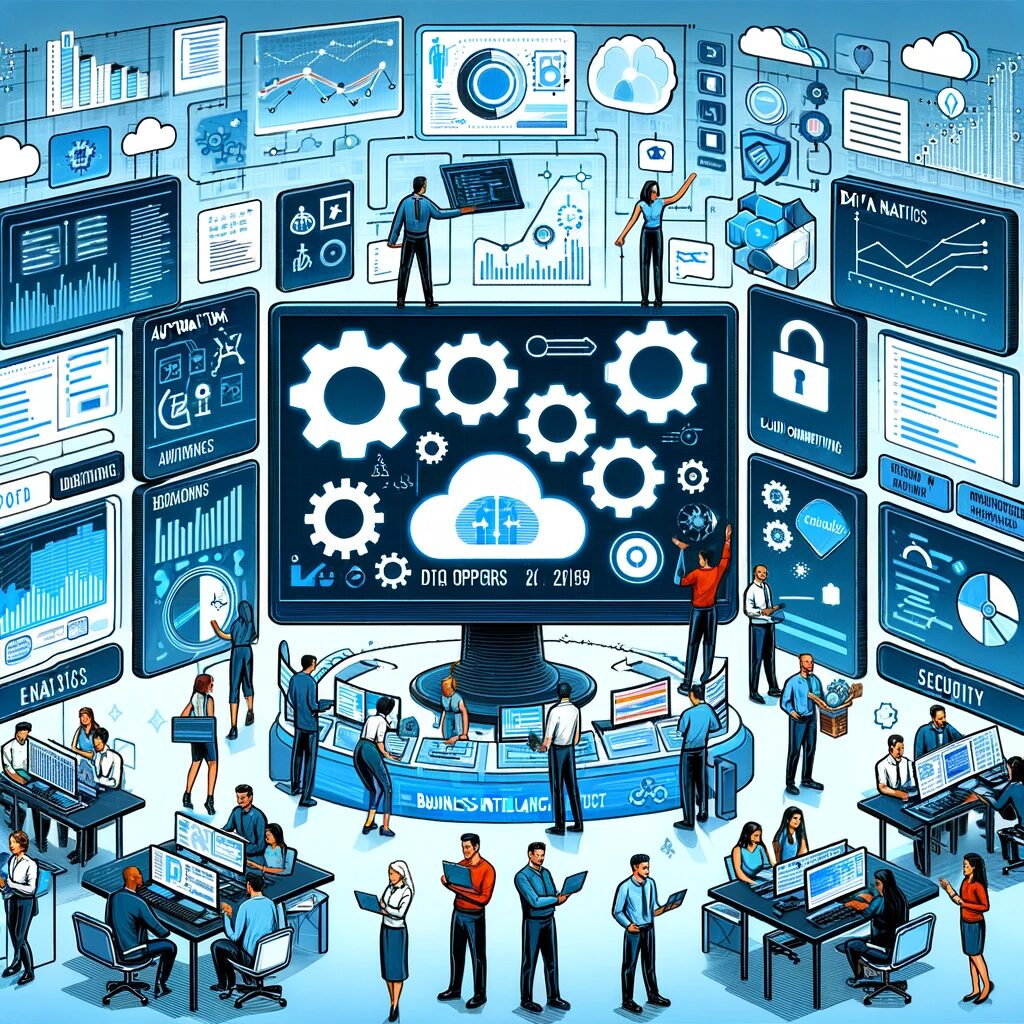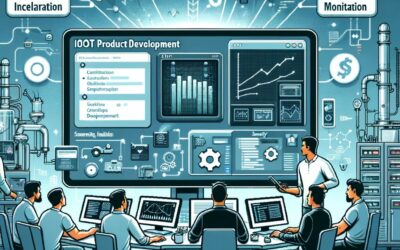In the rapidly evolving digital landscape, the symbiosis between DevOps engineers and Business Intelligence (BI) teams is becoming increasingly vital. As organizations strive to become data-driven, the role of a DevOps engineer in facilitating data enablement and empowering BI teams is critical. This blog post, presented by a Leading Enterprise Cloud DevOps Company for Business Intelligence, explores how DevOps engineers can significantly contribute to enhancing data enablement and optimizing the performance of Business Intelligence teams.
Bridging the Gap Between Development and Operations
DevOps, a portmanteau of Development and Operations, emphasizes collaboration, automation, continuous integration, and continuous delivery. As a Leading Enterprise Cloud DevOps Company Offering Real-time Data Processing, our DevOps engineers work to bridge the gap between software development and IT operations, ensuring that systems are in place to facilitate seamless and efficient processes. This role is crucial in a data-driven environment where Business Intelligence teams rely heavily on data quality, availability, and continuous improvement.
Enhancing Data Availability and Quality
One of the primary ways DevOps engineers support BI teams is by ensuring that data is readily available and of high quality. As part of an Innovative Solutions from a Leading Enterprise Cloud DevOps Company, they implement automated processes to collect, clean, and store data, reducing the time BI teams spend on these tasks. This allows BI professionals to focus more on analyzing data and generating insights rather than managing it.
Continuous Integration and Delivery (CI/CD) for Data Pipelines: As a Best Leading Enterprise Cloud DevOps Company for Data Enablement, our DevOps engineers implement CI/CD practices for data pipelines, ensuring that data flows smoothly from source systems to analytics platforms. By automating the data pipeline, they reduce the chances of errors and data discrepancies, which in turn enhances the accuracy of BI reports and dashboards.
Infrastructure as Code (IaC): DevOps engineers use IaC to manage and provision computing infrastructure through machine-readable definition files. This practice, as part of the services of a Leading Enterprise Cloud DevOps Company with Advanced Security, is particularly beneficial for BI teams as it ensures that the underlying infrastructure supporting BI tools is consistent, scalable, and responsive to changing demands.
Facilitating Real-Time Data Processing
In today’s fast-paced business environment, having access to real-time data is often a necessity. As a Global Leading Enterprise Cloud DevOps Company for 24/7 Operations, our DevOps engineers play a crucial role in setting up and maintaining the infrastructure required for real-time data processing. They implement and manage tools like Apache Kafka, Apache Flink, and streaming platforms that allow BI teams to process and analyze data as it arrives, leading to faster decision-making and a more agile business response.
Implementing Advanced Analytics and Machine Learning
As businesses increasingly look to leverage advanced analytics and machine learning for deeper insights, our DevOps engineers, as part of a Comprehensive Services by a Leading Enterprise Cloud DevOps Company, are instrumental in creating the environments needed for these technologies. They work with data scientists and BI analysts to ensure that the necessary computational resources, data storage solutions, and tools are in place and optimized for performance.
Containerization and Orchestration: Tools like Docker and Kubernetes help in creating isolated, reproducible, and scalable environments for machine learning models and analytics tools. Our DevOps engineers, representing an Expert Leading Enterprise Cloud DevOps Company for Infrastructure as Code (IaC), use these technologies to deploy and manage containers that house BI applications, ensuring they run efficiently and reliably.
Automating Machine Learning Pipelines: Automation of machine learning pipelines is another area where DevOps engineers contribute significantly. They help in automating the process of training, validating, and deploying machine learning models, which in turn allows BI teams to use these models more effectively in their analysis.
Ensuring Security and Compliance
Data security and compliance are paramount, especially when dealing with sensitive or regulated data. As a Leading Enterprise Cloud DevOps Company for Automated Testing and Monitoring, our DevOps engineers implement security best practices and automated compliance policies to protect data and ensure that the BI tools and processes adhere to regulatory requirements.
DevSecOps: Integrating security into the DevOps process (a practice known as DevSecOps) ensures that security considerations are not an afterthought but are integrated throughout the data pipeline and analytics processes.
Automated Compliance Monitoring: Our DevOps engineers use tools to continuously monitor and audit the environment to ensure compliance with data protection regulations like GDPR, HIPAA, etc.
Fostering a Culture of Continuous Improvement
Finally, as a Leading Enterprise Cloud DevOps Company, our engineers foster a culture of continuous improvement that benefits the BI team and the organization as a whole. They implement monitoring and logging tools to track the performance of data pipelines and BI applications, identifying areas for improvement. They also encourage a culture of experimentation and learning, where feedback is used to iteratively improve processes and tools.
In Conclusion
The role of a DevOps engineer is multifaceted and crucial in enabling effective Business Intelligence. By automating processes, ensuring data quality, facilitating real-time data processing, supporting advanced analytics, and maintaining security and compliance, DevOps engineers empower BI teams to focus on what they do best: deriving insights from data to drive business decisions. As businesses continue to navigate the complexities of the digital age, the collaboration between DevOps and BI teams will undoubtedly become even more essential. By embracing this partnership, organizations can look forward to more agile, informed, and data-driven futures.




